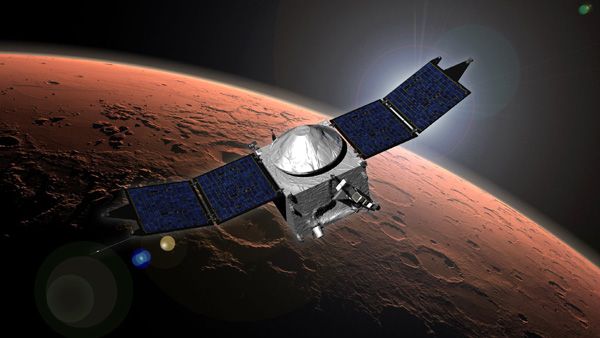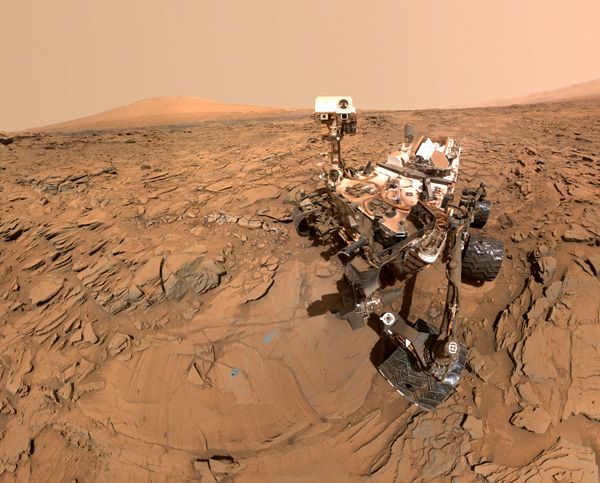
NASA
NASA Seeks Industry Ideas for an Advanced Mars Satellite (Press Release - April 21)
NASA is soliciting ideas from U.S. industry for designs of a Mars orbiter for potential launch in the 2020s.
NASA is soliciting ideas from U.S. industry for designs of a Mars orbiter for potential launch in the 2020s. The satellite would provide advanced communications and imaging, as well as robotic science exploration, in support of NASA's Journey to Mars. The orbiter would substantially increase bandwidth communications and maintain high-resolution imaging capability. It also may use experimental cutting-edge technologies, such as high-power solar electric propulsion or an optical communications package, which could greatly improve transmission speed and capacity over radio frequency systems.
Under the direction of NASA's Mars Exploration Program, the agency's Jet Propulsion Laboratory in Pasadena, California, is conducting pre-formulation planning for this possible orbiter mission. Pre-formulation plans include the procurement of industry studies for a solar-powered orbiting spacecraft. This effort seeks to take advantage of industry capabilities to improve deep space, solar electric propulsion-enabled orbiters to accommodate scientific instruments, demonstrate capability for rendezvous and capture, and advance telecommunications capabilities.
"Our success in exploring Mars, to unravel the mysteries of the Red Planet, depends on having high bandwidth communication with Earth and overhead imaging," said John Grunsfeld, astronaut and associate administrator of NASA's Science Mission Directorate in Washington. "Currently, we depend on our orbiting science missions to perform dual service in making measurements and acting as communication relays, but we can't depend on them to last forever. This new orbiter will use cutting-edge technology to revitalize our ability to continue to explore Mars and support transformative science, including a potential sample return mission in the future."
JPL plans to award concept study subcontracts of $400,000 per subcontract in June. The concept studies for the spacecraft will be completed over a four-month period.
In response to an earlier request from NASA, the Mars Exploration Program formed an analysis group that proposed, in a 2015 report, possible science objectives for a Mars orbiter capable of replenishing and advancing the telecommunications and reconnaissance resources available at Mars.
NASA is studying how to implement this mission concept in concert with its international partners to the greatest extent possible. Historically, there have been significant international contributions to NASA Mars missions that include the Curiosity rover, Mars Reconnaissance Orbiter spacecraft and the Mars Atmosphere and Volatile Evolution Mission orbiter, both currently orbiting the Red Planet. The agency will seek such partnerships for this potential future orbiter mission, as well.
NASA is on an ambitious journey to Mars that includes sending humans to the Red Planet, and that work remains on track. Robotic spacecraft are leading the way for the Mars Exploration Program, with current missions, in addition to the planned launch of the Insight lander in 2018, and the design and build of the Mars 2020 rover.
Source: NASA.Gov
****

NASA / JPL - Caltech / MSSS

No comments:
Post a Comment